How to Simplify Your Daily Routine for Clarity & Calm
Category: Lifestyle
Simplify Your Daily Routine to Embrace Minimalism and Live Better
If you're here, you're likely feeling overwhelmed by the endless to-dos and clutter that cloud your daily life. You might have dabbled in minimalism or simply want to streamline your day for more clarity and peace of mind. Whether you’re a busy professional, a parent juggling responsibilities, or anyone seeking a lighter, more intentional lifestyle, finding practical ways to simplify your routine is key. This post is tailored for you — someone eager to strip away the excess and cultivate a daily rhythm that supports your well-being and goals without sacrificing joy or productivity.
You've probably tried generic tips before, but those often miss the deeper mindset shifts and actionable habits that transform chaos into calm. This guide breaks down simple, natural steps with a clear flow and minimal jargon, grounding suggestions in the philosophy of minimalism and intentional living. By reading on, you will uncover a structured yet flexible framework to design a daily routine that feels manageable and meaningful. No fluff, no pressure — just honest strategies to help you reclaim time, reduce stress, and create space for what truly matters.
- Simplify Your Daily Routine to Embrace Minimalism and Live Better
- Understanding the Benefits of Simplifying Your Daily Routine
- Decluttering Your Schedule: Prioritize What Truly Matters
- Establishing Morning and Evening Rituals: Start and End Your Day with Intention
- Streamlining Tasks with Minimalist Techniques
- Embracing Technology Wisely: Simplify Your Digital Life
- Simplifying Meal Planning and Preparation: Minimalistic Approaches to Nutrition
- Creating a Peaceful, Organized Environment: Reduce Decision Fatigue and Enhance Focus
- Prioritizing Self-Care and Mindfulness: Nurture Your Mental and Emotional Health Simply
- Adjusting and Adapting Your Routine Over Time: Mindful Evaluation for Lasting Simplicity
Understanding the Benefits of Simplifying Your Daily Routine
Embracing a simplified daily routine goes far beyond just tidying up your schedule—it fundamentally reshapes your mental and emotional landscape. When you reduce unnecessary complexity in your day-to-day life, you create vital space for mental clarity, enabling your mind to focus on what truly matters without constant distraction. This clarity naturally leads to a significant drop in stress levels, as decision fatigue and overwhelm are minimized. Instead of feeling pulled in countless directions, you develop a calm, centered approach to each moment.
Simplifying your routine doesn't mean doing less; rather, it means doing more of what aligns with your goals and values, which dramatically enhances productivity. With fewer tasks competing for attention, your energy is channeled efficiently, resulting in higher-quality work and a more intentional use of your time. In essence, a streamlined daily rhythm not only supports emotional well-being but also cultivates a sustainable path for success and personal fulfillment. Here are some core benefits at a glance:
- Improved Focus: Fewer distractions help you concentrate deeply and complete tasks faster.
- Reduced Stress: A clear schedule prevents overwhelm, promoting emotional balance.
- Better Time Management: Prioritizing essentials gives you control over your day.
- Increased Energy: Eliminating clutter—both physical and mental—frees up your vitality.
- Greater Satisfaction: Intentional living fosters a sense of accomplishment and joy.
By committing to simplification, you unlock a lifestyle where every action supports your well-being and long-term aspirations, making your daily routine a powerful tool for minimalism and intentional living.
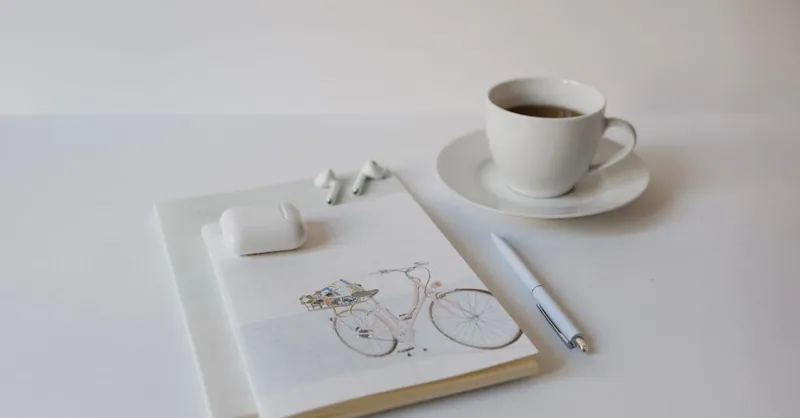
Image courtesy of Arina Krasnikova
Decluttering Your Schedule: Prioritize What Truly Matters
Simplifying your daily routine starts with decluttering your schedule—a crucial step to regain control over your time and energy. Many of us fall into the habit of saying "yes" to every request or commitment, leading to an overwhelming calendar packed with activities that may not align with our deeper values or goals. To create a more intentional and minimalist lifestyle, it’s essential to evaluate each commitment critically. Ask yourself: Does this activity enhance my life, nurture my well-being, or bring me closer to my purpose? If the answer is no, it’s time to consider letting it go.
Learning to say no gracefully is both an art and a vital skill in simplifying your routine. Declining invitations or tasks doesn’t mean rejecting others—it means protecting your time to focus on what truly matters. You can be polite but firm by expressing appreciation and offering alternative solutions when appropriate. Prioritizing activities that resonate with your values—whether that’s family time, creative projects, or self-care—enables you to build a daily schedule that feels intentional rather than chaotic. Use these strategies to declutter your schedule effectively:
- Audit your calendar: Identify recurring commitments and assess their importance.
- Set clear boundaries: Define your availability and communicate it honestly.
- Practice the pause: Before agreeing to new obligations, take time to reflect.
- Prioritize mission-driven tasks: Focus on what aligns with your core values.
- Let go without guilt: Recognize that saying no is a form of self-respect, not selfishness.
By consciously curating your schedule this way, you reduce overwhelm and invite more meaningful, fulfilling experiences into your daily life—creating a clearer, more peaceful path toward minimalism.
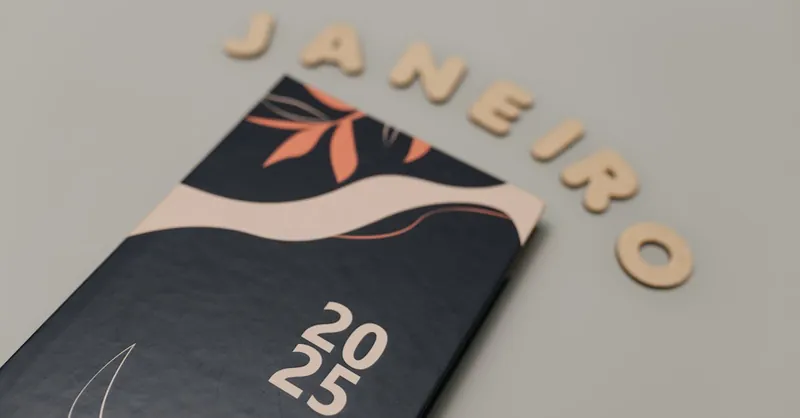
Image courtesy of Matheus Bertelli
Establishing Morning and Evening Rituals: Start and End Your Day with Intention
Creating simple, consistent morning and evening rituals is a powerful way to anchor your day in calm and clarity. These routines are not about packing your schedule with more tasks but about cultivating small, intentional habits that prepare your mind and body to engage with the day purposefully and wind down peacefully at night. When designed mindfully, morning and evening rituals foster emotional balance, reduce decision fatigue, and create a sense of control amidst life’s chaos—key principles of minimalism and intentional living.
Why Rituals Matter in a Simplified Routine
Rituals act as gentle transitions that signal the start and end of your waking hours, helping your brain shift gears smoothly. A morning ritual sets the tone for your day by grounding you in presence rather than rushing into busy schedules. Conversely, an evening ritual helps decompress, reflect, and prepare for restorative rest. By embedding just a few meaningful activities into these daily anchors, you reduce overwhelm and boost productivity without sacrificing peace.
How to Create Your Mindful Morning and Evening Rituals
To establish rituals that truly simplify your life, focus on consistency over complexity. Here are foundational strategies for both:
- Morning Rituals:
- Wake up at a regular time to regulate your internal clock.
- Engage in a calming habit like mindful breathing, light stretching, or journaling gratitude.
- Avoid immediate screen time to preserve mental clarity.
-
Set one clear intention or priority for the day to guide your focus.
-
Evening Rituals:
- Dim lights and reduce digital distractions at least 30 minutes before bed.
- Practice gentle activities like reading, meditation, or reflecting on positive moments.
- Prepare for tomorrow by organizing essentials to ease morning decisions.
- Aim for consistent sleep patterns to rejuvenate both body and mind.
Integrating these simple, purposeful rituals into your daily routine enhances your minimalist lifestyle by providing structure without rigidity. Over time, these habits build resilience against stress and cultivate a peaceful rhythm that supports your overall well-being, making each day smoother and more fulfilling.
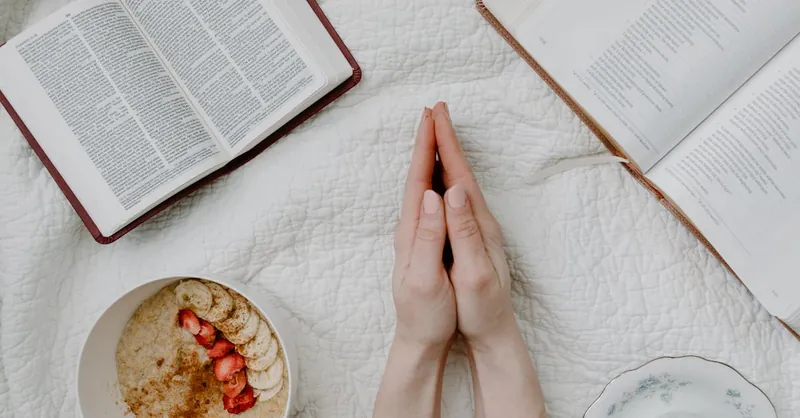
Image courtesy of Tara Winstead
Streamlining Tasks with Minimalist Techniques
One of the most effective ways to simplify your daily routine is by streamlining tasks using proven minimalist productivity techniques such as batching, time blocking, and the two-minute rule. These strategies reduce mental clutter and optimize your workflow, helping you manage chores and work efficiently without feeling overwhelmed.
Batching involves grouping similar tasks together and completing them in one focused session. For example, designate specific times for responding to emails, making phone calls, or running errands rather than scattering them across your entire day. This minimizes task-switching and enhances concentration. Complementing batching, time blocking means scheduling fixed blocks of uninterrupted time on your calendar dedicated to particular activities. This practice empowers you to prioritize high-impact tasks while preserving energy for what matters most. Lastly, the two-minute rule—popularized by productivity expert David Allen—encourages you to immediately complete any task that takes two minutes or less. This prevents small chores from piling up and unnecessarily draining your mental bandwidth.
By integrating these minimalist techniques, you create a clear, intentional daily rhythm where tasks are handled proactively and efficiently. The result is less procrastination, reduced stress, and more time freed for meaningful experiences—perfectly aligning with the minimalist goal of living with greater purpose and ease. Embrace batching, time blocking, and the two-minute rule as essential tools to simplify your daily routine and reclaim your focus and energy.
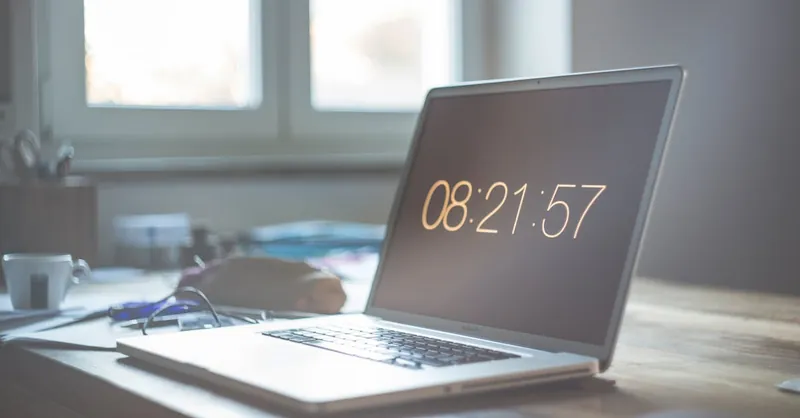
Image courtesy of Markus Spiske
Embracing Technology Wisely: Simplify Your Digital Life
In our increasingly connected world, technology can be a powerful ally for simplifying your daily routine—but only when used mindfully. Rather than letting digital tools add complexity and create distractions, the key is to identify and implement apps and devices that genuinely simplify your life. This means choosing tools that automate repetitive tasks, organize your schedule, or enhance focus without overwhelming you with notifications or clutter.
How to Use Digital Tools Without Adding Chaos
To embrace technology wisely, start by auditing your current digital habits and tools. Ask yourself which apps or platforms help you stay organized, reduce mental load, or save time—and which ones contribute to distraction or stress. From there, intentionally curate a minimal set of digital resources tailored to your needs. For example:
- Task Management Apps: Use simple, intuitive apps like Todoist or Microsoft To Do to keep track of priorities and deadlines without overloading complexity.
- Calendar Integration: Sync calendars to consolidate appointments and reminders, minimizing the risk of missed commitments.
- Automation Tools: Leverage automation through services like IFTTT or Zapier to handle routine tasks (e.g., email sorting or bill payments) seamlessly.
- Focus Enhancers: Install apps such as Forest or StayFocusd that help limit distracting websites and encourage productivity during work periods.
Limiting Digital Distractions
Reducing digital distractions is essential when simplifying your routine. Consider methods such as:
- Scheduling "tech-free" times, especially during morning and evening rituals, to foster presence and relaxation.
- Turning off non-essential notifications to avoid frequent interruptions that disrupt your workflow and mental clarity.
- Keeping your digital workspace minimal—organize files and bookmarks, delete unused apps, and maintain a clean desktop or mobile interface.
By embracing technology wisely and limiting digital distractions, you create a digital environment that supports your minimalist lifestyle. This intentional approach ensures your devices become tools for enhancing focus, productivity, and calm—not sources of digital clutter or overwhelm.

Image courtesy of Photo By: Kaboompics.com
Simplifying Meal Planning and Preparation: Minimalistic Approaches to Nutrition
One of the simplest yet most impactful ways to embrace minimalism in your daily routine is by streamlining meal planning and preparation. Food is an essential part of life, but complicated cooking routines and constantly figuring out what to eat can drain your time and energy. By adopting minimalist nutrition strategies such as meal prepping, easy recipes, and practicing mindful eating, you can free up mental bandwidth, reduce stress around mealtimes, and nourish your body intentionally.
Meal Prepping for Effortless Nutrition
Meal prepping is a cornerstone of simplifying your food routine. Setting aside a small block of time each week to prepare several meals or meal components in advance eliminates the daily scramble of deciding what to cook. It also reduces food waste, lowers grocery trips, and helps you maintain a balanced diet without the overwhelm. Simple meal prep ideas include:
- Batch-cooking staples like grains, roasted vegetables, or proteins to mix and match throughout the week.
- Making large salads or stews that can be portioned into ready-to-go servings.
- Pre-chopping ingredients such as onions, peppers, and herbs, so they’re ready at hand when you need them.
Choosing Simple, Nutritious Recipes
Minimalism in cooking means focusing on easy-to-make, wholesome recipes that require few ingredients and little time but deliver maximum nourishment. Look for recipes that emphasize fresh, seasonal produce, whole grains, and lean proteins without complicated steps or exotic components. Keeping a small repertoire of go-to meals that you enjoy and trust helps reduce decision fatigue and meal-related stress.
Practicing Mindful Eating
In addition to practical meal preparation, mindful eating plays a crucial role in simplifying your relationship with food. Mindful eating means being fully present while eating—recognizing hunger and fullness cues, savoring flavors, and eating without distractions such as screens. This practice promotes better digestion, helps prevent overeating, and deepens your appreciation for nourishment. It aligns perfectly with minimalist living, which values intentionality and awareness in every aspect of life.
By integrating these minimalistic nutrition principles—meal prepping, choosing simple recipes, and embracing mindful eating—you cultivate a food routine that supports energy, reduces overwhelm, and complements your broader goal of living simply and intentionally every day.
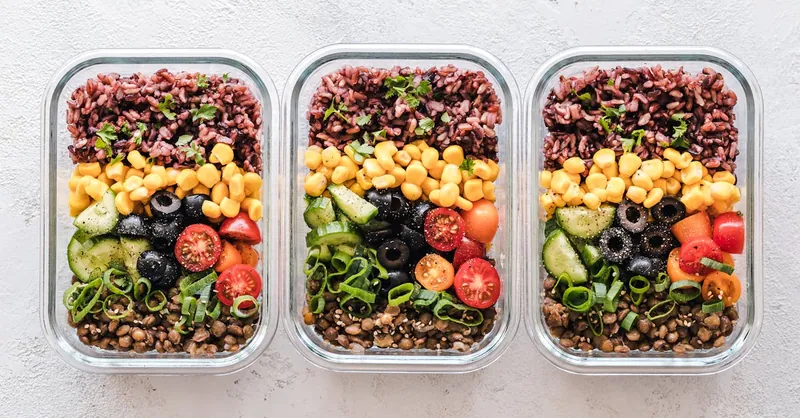
Image courtesy of Ella Olsson
Creating a Peaceful, Organized Environment: Reduce Decision Fatigue and Enhance Focus
A calm, clutter-free physical space is foundational to simplifying your daily routine and embracing minimalism. When your environment is tidy and intentionally organized, you naturally reduce decision fatigue—the mental exhaustion that occurs when faced with too many choices—and create a setting that supports sustained focus and productivity throughout the day. This deeper level of physical decluttering goes beyond aesthetics; it directly impacts how efficiently and peacefully you navigate daily tasks.
Why Organize Your Space for Simplicity and Clarity?
Every item in your immediate surroundings demands some level of mental energy. Piles of papers, overflowing drawers, or mismatched belongings lead to constant visual noise and unconscious distractions. By streamlining belongings and thoughtfully arranging your living and workspaces, you create order that translates to mental calmness. An organized space encourages you to move through your routine with greater ease, spending less time deciding where things are and what to do next. This boosts efficiency and creates a tranquil atmosphere conducive to intentional living—core tenets of minimalism.
Practical Steps to Create a Peaceful, Organized Space
- Adopt a “one in, one out” rule: Prevent clutter buildup by removing one item for every new thing you bring into your space.
- Designate clear zones: Assign specific places for essentials like keys, documents, and daily-use items to eliminate searching and decision-making.
- Declutter regularly: Set aside weekly or monthly times to review and remove items that no longer serve a purpose or bring joy.
- Simplify your decor: Choose functional, quality pieces over excess decoration to enhance calm and reduce sensory overload.
- Use storage solutions mindfully: Opt for minimal containers and organizers that keep items accessible yet hidden, preserving a clean visual flow.
By fostering an organized environment, you minimize distractions, conserve mental energy, and create space for focused work and restorative moments. This clarity not only enhances your productivity but also nurtures a greater sense of peace and mindfulness, helping your simplified daily routine feel natural and sustainable.
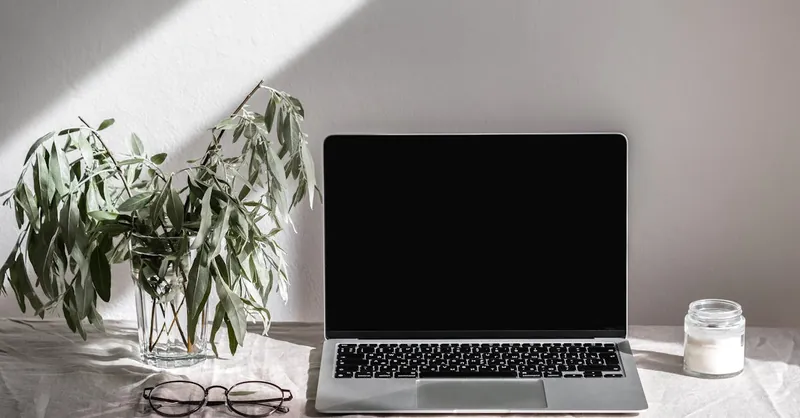
Image courtesy of Polina ⠀
Prioritizing Self-Care and Mindfulness: Nurture Your Mental and Emotional Health Simply
Embracing minimalism means more than decluttering your physical space or streamlining tasks—it also requires prioritizing self-care and mindfulness without complicating your routine. Integrating habits that nurture your mental and emotional well-being fosters resilience, reduces stress, and enhances overall life satisfaction, all while maintaining simplicity and intention.
Simple Self-Care Habits to Incorporate Daily
You don’t need elaborate rituals or time-consuming practices to care for yourself effectively. Small, consistent actions can profoundly impact your mental health and clarity:
- Mindful Breathing: Spend just a few minutes each day focusing on slow, deep breaths to center your mind and ease tension.
- Short Meditation or Reflection: Even five minutes of meditation or journaling encourages presence and emotional balance.
- Movement and Stretching: Gentle daily movement, like stretching or a brief walk, refreshes your body and mind, releasing stress without adding complexity.
- Digital Detox Moments: Intentionally unplug from screens periodically to cultivate presence and prevent burnout.
- Gratitude Practice: Taking time to acknowledge simple joys or achievements rewires your mindset toward positivity and contentment.
Cultivating Mindfulness in Everyday Life
Mindfulness, the practice of being fully present and aware without judgment, is a cornerstone of simplifying your life with intention. It helps you respond thoughtfully rather than react impulsively to external pressures. To weave mindfulness naturally into your routine:
- Engage fully in routine tasks, such as eating, showering, or walking, by noticing sensations and experiences instead of rushing through them.
- Pause before decisions to check in with your feelings and priorities, ensuring choices align with your minimalist values.
- Use mindful reminders, like a gentle chime or sticky notes, to bring awareness back to the present moment throughout your day.
By prioritizing self-care and mindfulness in simple, manageable ways, you build a strong foundation for mental clarity and emotional stability that complements every aspect of your simplified routine. These practices enhance your capacity to live intentionally, reduce mental clutter, and embrace minimalism as a holistic lifestyle—not just a physical state.
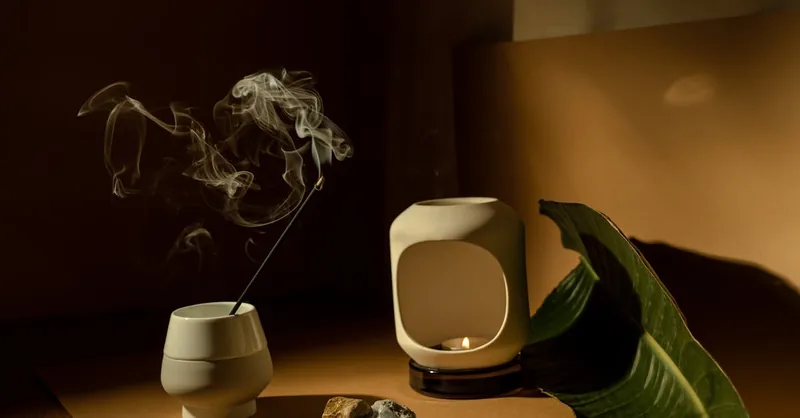
Image courtesy of Olha Ruskykh
Adjusting and Adapting Your Routine Over Time: Mindful Evaluation for Lasting Simplicity
Simplifying your daily routine is not a one-time event but an ongoing process of adjusting and adapting as your life evolves. To maintain a truly minimalist and intentional lifestyle, it’s essential to regularly evaluate the effectiveness of your routine and make mindful adjustments that reflect your current priorities, energy levels, and goals. By doing so, you prevent stagnation, reduce friction, and ensure that your simplified routine continues to serve your well-being without becoming a rigid structure.
How to Evaluate and Adapt Your Routine
Begin with a regular check-in, whether weekly or monthly, to assess which aspects of your routine are helping you feel calm, focused, and productive—and which are creating unnecessary stress or clutter. Reflect on questions like:
- Are my daily habits aligned with my core values and long-term goals?
- Do I feel energized or drained by my current schedule?
- Which tasks or rituals no longer serve me and can be let go?
- Where am I experiencing decision fatigue or overwhelm?
Once you identify areas needing refinement, apply these simple strategies to adapt your routine:
- Embrace flexibility: Allow your routine to evolve naturally with changing seasons, responsibilities, or moods rather than forcing rigid adherence.
- Experiment mindfully: Test small changes incrementally—such as shifting task times or tweaking morning rituals—and observe their impact before fully committing.
- Simplify further: If something feels burdensome or unnecessary, reduce or eliminate it. Minimalism thrives on intentional subtraction.
- Reinforce what works: Double down on habits that boost your clarity, energy, and well-being.
By cultivating a mindset of continual refinement, you keep your daily routine dynamic and responsive to your real needs, ensuring lasting simplicity and intentional living. This approach transforms your routine from a fixed schedule into a supportive framework that adapts with you—making minimalism not just a practice, but an enriching lifestyle.

Image courtesy of Tara Winstead
